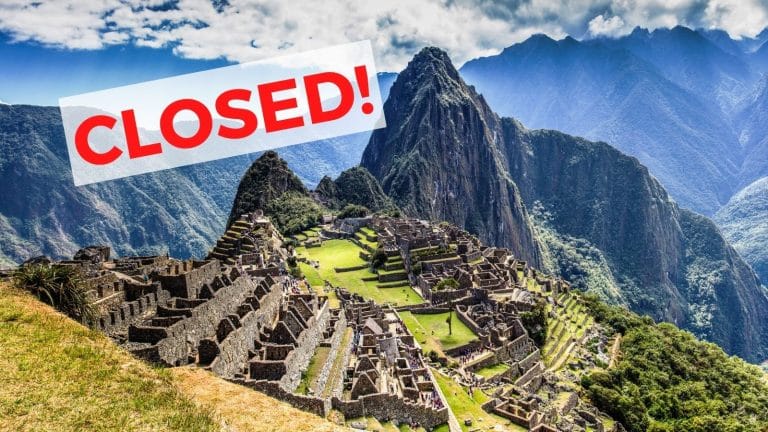Due to ongoing protests in Peru, the popular tourist destination Machu Picchu has been closed indefinitely.
Officials from Peru have halted access to the area, the Inca Trail Network, and local rail services.
A full refund is available to those who purchased tickets to Machu Picchu between now and one month after the protests have ended. The website‘s ticketing page is presently being updated. Tourists who require a refund, however, can get in touch with the Ministry of Culture by calling +51 84 582030 or sending an email to [email protected].
After protesters damaged the rail line to the citadel of Machu Picchu, authorities announced its closure on Saturday.
In addition, PeruRail informed the public that due to the damage and obstruction caused by the protesters, traffic to and from Machu Picchu has been suspended. The closure will have a significant impact on Peru’s tourism industry, which receives an average of one million visitors annually.
The provinces of Lima, Cusco, Puno and Callao were included in the state of emergency declared by Peru. The state of emergency gives the police and military more powers to monitor and control protests. It also suspends a number of constitutional rights.
Other foreign governments have also issued travel warnings. Americans should think twice before traveling to Peru, according to the Level 3 advisory from the U.S. Department of State.
Although the protests have not specifically directed against visitors, they have had some impact on the travel and tourism sector. As civil unrest intensifies, protests are occurring in additional regions of the country. Travelers may be inconvenienced by the unpredictability of the violence or by the closure and disruption of the country’s tourist destinations and infrastructure.
Since the turmoil began, protesters have also attacked police stations, shut down airports, blocked highways, and damaged the country’s transportation infrastructure. More than 50 people have died and up to 600 have been injured by the police and military crackdown.

